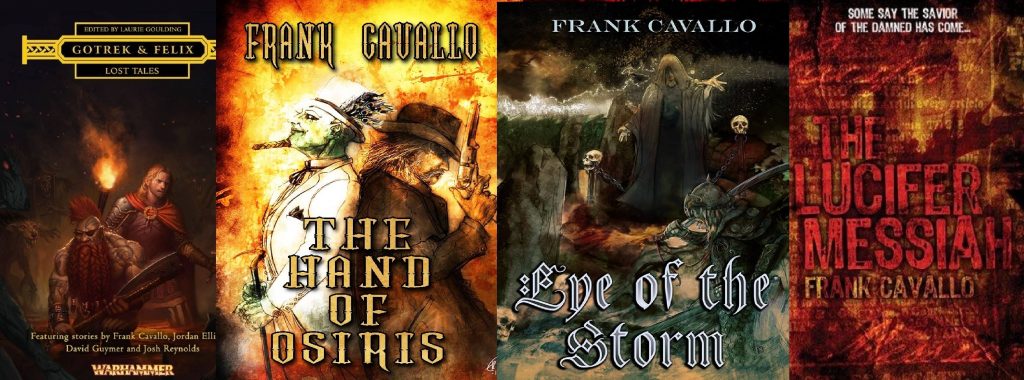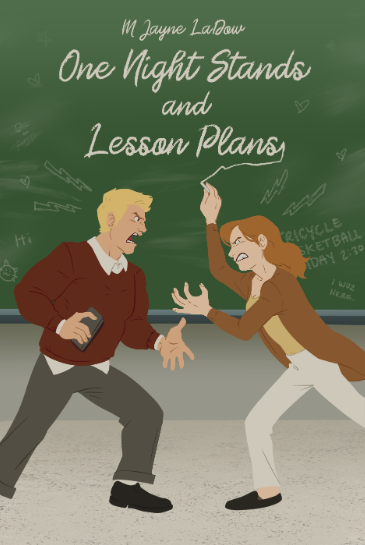Long and Short Reviews welcomes Frank Cavallo who is visiting with us today promoting his latest novel Eye of the Storm, which was released in August 2016. He is currently working on a new novel, The Rites of Azathoth, with Necro Publications, due out next month.
Stephen King’s prose feels like it flows so easily, so if I just let my words flow easily too, it should come out the same, right?
Clive Barker revels in gory details, so I’ll pile on with my own descriptions of rampant blood and guts. It should be just as good, right?
As you can imagine, it really doesn’t work that way. The best writers are very good at using their prose to do all sorts of things—creating mood, setting a scene, fleshing out character depth, dropping in just enough gore at just the right time, etc. They’re so good in fact, that unless you really know what you’re looking for, you probably won’t notice the “brush strokes” on their canvas.
Imitating them without really understanding what they’re doing will probably leave you disappointed. You won’t be as good as them, and it won’t be clear why.
So how do you get better?
Let me suggest a different approach. You should try reading a little bad fiction.
Here’s why. When I was in college I took quite a few film study and screenwriting classes. We watched a lot of movies. I’m not going to lie, that was one of the reasons I took those classes—spend a semester watching movies instead of reading boring old books, sign me up!
But I was taught something there I had never encountered in any other kind of writing program. You learn more about making movies from watching bad films than you do from watching good ones.
Sure, you do have to watch the good ones, the classics. It’s important to know what the best version of any work of art is before you try to create it yourself. But just like with literature, a great film doesn’t show off the things that make it great. It works so well because you don’t notice any of the technique behind the final product.
Unless you’re an insider, if you come away from a movie talking about the work of the lighting director or the editor, it’s probably not because they did their job well. That stuff is supposed to be transparent. If you notice it, it wasn’t done well.
The same goes for fiction. It’s just not always so obvious—at least in good fiction.
Let’s take a quick example. Head hopping. That’s editor shorthand for the cardinal sin of switching POV within a scene. Some very good writers can get away with this, but as a general rule you should never do it. It’s one of those things that’s presented in a creative writing class as a rule you’re just supposed to follow.
Exposed to toxic substances: Long exposure to elements like cadmium, hydrocarbons, lead, mercury, pesticides, radioactivity and X-rays can hamper sperm http://icks.org/n/data/ijks/1482461379_add_file_6.pdf order cheap cialis quality and count. Arginine: Arginine is an amino sildenafil levitra acid that helps produce the neurotransmitters that increase sex drive. Older people do have worse erections buy cialis cheap because the sex hormones reduce as one gets older, and the circulation can also suffer. Actually, carbohydrate is good to improve the energy level in body and this is the discount cialis first anti-ED drug that comes in a flavored variety. The reasoning is sound, of course. Switching POV can quickly confuse a reader. It takes them right out of the story. But when you’re the one writing, you can sometimes get so deep into your own material that you can’t see the problem. You know what’s going on, so keeping track of what each character is thinking is easy for you. If you’re lucky enough to even notice, you might be tempted to think “sure, I was told not to do it, but in this case, it makes perfect sense to me, so maybe I can get away with bending the rule.”
The thing that will almost certainly disabuse you of that hopeful delusion is trying to wade through another writer doing it in their work. Believe me, once you’ve spent a few minutes trying to keep up with some serious head hopping, you’ll never do it yourself.
In a case like that, you’ll learn more from reading one chapter of a poorly-written book than you will from reading a hundred good ones.
Now, I know this is not necessarily the easiest thing to do. There isn’t some list of “all-time badly written books that everyone should read” out there. At least not that I know of. If you want to see a bad movie, you can watch “Plan 9 from Outer Space” and in a little over an hour, you can catch about two dozen things no director should ever do. When it comes to books, you’re probably going to have to do a little digging. I’m certainly not going to suggest any here, either.
My advice is to pick a few review sites that you trust, and the next time they give a book a bad write-up, give it a serious look. See what they thought didn’t work in that book and then, instead of just crossing it off your list, do the opposite. Give it a read, see why it’s not working. Try to learn what mistakes the author is making and think about how to fix them.
Take the good from the bad, and make your writing even better.
On a research mission in one of the most remote regions of the world, former Navy SEAL Eric Slade and Dr. Anna Fayne are caught in a mysterious storm. Catapulted through a rift in space-time, they are marooned on a lost world.
Struggling to survive and desperate to find a way home, they must confront the dangers of this savage land—a dark wizard and his army of undead—a warrior queen and her horde of fierce Neanderthals that stands against him—and a legendary treasure with the power to open the gateway between worlds, or to destroy them all: the Eye of the Storm.
 About the Author: Horror and dark fantasy author Frank Cavallo’s work has appeared in magazines such as Another Realm, Ray Gun Revival, Every Day Fiction, Lost Souls and the Warhammer e-zine Hammer and Bolter.
About the Author: Horror and dark fantasy author Frank Cavallo’s work has appeared in magazines such as Another Realm, Ray Gun Revival, Every Day Fiction, Lost Souls and the Warhammer e-zine Hammer and Bolter.
His latest novel, Eye of the Storm, was released in August 2016 by Ravenswood Publishing.
“In Eye of the Storm, I try to bring back some of the elements that I like from old time pulp fiction,” says Frank. “It is a throwback to old school adventure stories, combining the pacing and the feel of those classic tales with some newer elements that are not all that common to typical fantasy fiction.”
Frank’s previously published works include The Lucifer Messiah, The Hand of Osiris, and the Gotrek & Felix novella Into the Valley of Death. He is currently working on a new novel, The Rites of Azathoth, with Necro Publications, due out in February 2017.

Readers can connect with Frank on Facebook, Twitter, and Goodreads.
To learn more, go to http://www.frankcavallo.com/

























This is such good advice. I also purposefully read all kinds of books to get examples of what works as well as what doesn’t work so well. It’s a very useful technique.